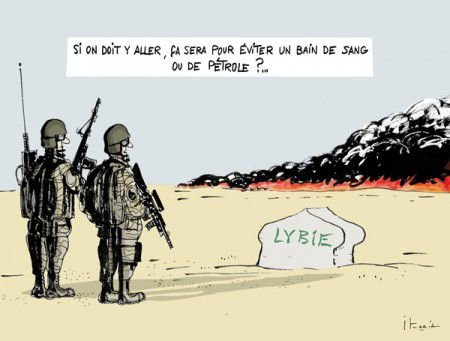Rep. Dennis Kucinich (D-Ohio), an outspoken critic of U.S. military involvement in Libya, on Thursday called on the United Nations to ensure that governments are held accountable for civilian deaths in Libya under operations authorized by U.N. Security Council Resolution 1973.
In his Thursday letter to U.N. Secretary General Ban Ki-moon, Kucinich cited press reports that said Libyan authorities are accusing North Atlantic Treaty Organization (NATO) forces of killing 85 villagers in air strikes, including 33 children.
“If such reports are true, it further highlights the increased risks to civilians that has occurred as a result of military intervention in Libya and is further evidence that continued bombing by NATO under the context of UNSCR 1973 is an inappropriate tool to protect civilians or force Moammar Gadhafi from power,” Kucinich wrote.
“Who is NATO accountable to?” he asked. “How can they continue to cause the deaths of innocent civilians under the color of international law and not be held accountable?”
Kucinich said the absence of any warning from the U.N. to NATO “makes a mockery of U.N. resolutions which are allegedly aimed at protecting innocent civilians from organized violence.”
“I reiterate my requests that the U.N. take immediate action to hold member states and their NATO extension accountable for actions in Libya that violate U.N. Security Council Resolutions that place innocent civilians at risk,” he wrote.
By Pete Kasperowicz – 08/11/11 01:43 PM ET
Kucinich Invites Foreign Intrigue with NATO War Crimes Letter
Congressman Dennis Kucinich (D-OH) recently sent a letter to the United Nations and the International Criminal Court enjoining them to initiate an investigation of NATO and its military commanders for potential war crimes related to civilian deaths in Afghanistan and Libya. Kucinich concluded his exhortation: “NATO has repeatedly and wantonly neglected to follow [international] law. The United Nations…has no choice but to conduct an independent investigation of actions taken by NATO and to pursue prosecution where warranted.”
The Representative from Ohio is misguided in his estimation that American commanders should subject themselves to a supranational inquiry. To do so would be a fundamental abrogation of U.S. sovereignty.
That Kucinich appealed to the ICC is curious, for the court holds no authority over American law or conduct. Since Bill Clinton’s presidency, the United States has unequivocally refused to subject itself to ICC oversight, for such action would present a serious threat to U.S. sovereignty. The American people, as the nation’s collective sovereign, have submitted themselves to the purview of the Constitution as their land’s highest law. Canadian law, French jurisprudence, or ICC injunctions cannot supersede this document in matters of American policy.
Had Kucinich turned to the Constitution instead of international bodies, he would have encountered the Define and Punish Clause. Should an international situation arise in which the U.S. military is in the wrong, the Constitution empowers the legislature “to define and punish…offenses against the law of nations.” How does Congress do this? The Constitution has another answer: the Military Regulation Clause, giving representatives and senators unequivocal authority “to make rules for the government and regulation of the land and naval forces.” Historically, such regulations have taken the form of military tribunals. Reflected in both articles is the principle of self-government so central to the American regime. The Founders did not wait for a foreign body to impose a rubric of international justice over them; they assumed the responsibility. Never before has America abandoned her military leaders to the caprices of global institutions; such action, as Alexander Hamilton observed, would only invite foreign intrigue and compromise America’s security.
Unfortunately for Americans, Rep. Kucinich’s understanding of security is very different from Hamilton’s. When asked in 2003 why he had so much confidence in international bodies like the U.N., then-presidential candidate Kucinich responded: “The only way that we [can] be safe as a nation is to reach out and to engage with the world community in the cause of international security.” In his second presidential campaign four years later, the congressman advocated cutting the defense budget by 25%. By advocating such a rash export of political sovereignty, Kucinich betrays the very naivete and rosy idealism rejected in the Constitution. Should Mr. Kucinich claim his legitimate authority to regulate in these matters, he would encounter a Constitution responsible enough to hold its military accountable, and find reason enough to strengthen it for the common defense.
Marion Smith
July 1, 2011 at 4:30 pm

















